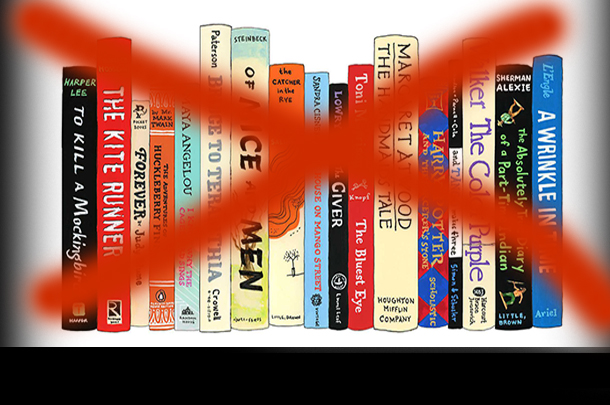from 21st Century Wire:

A shocking new trend is on the move in America: following historic highs last year, renewed efforts to ban books from school libraries across the country are on the rise this school year.
This latest news was reported in two studies filed by the American Library Association (known as ALA), and free speech advocacy organization, PEN America. Their reports show how numerous books have been targeted by radical leftist activists and groups – demanding that thousands of traditional texts be removed from school libraries due to them being ‘offensive’, ‘racist’, or ‘potentially hateful.’
TRUTH LIVES on at https://sgtreport.tv/
In California’s Burbank Unified School District, no less than five novels were challenged, including classics like Harper Lee’s “To Kill a Mockingbird,” Mark Twain’s “The Adventures of Huckleberry Finn,” John Steinbeck’s “Of Mice and Men,” Mildred D. Taylor’s adult classic “Roll of Thunder, Hear My Cry,” and Theodore Taylor’s “The Cay”.
On the other side of the political divide, conservative and Christian pressure groups are lobbying for the removal of material and limits on teaching youth about racial politics, gender identity, sexuality and LGBTQ issues.
The ALA’s report documents some 681 attempts to either ban or restrict access to 1,651 different books in schools between the period of Jan. 1 to Aug. 31 of this year, 2022.
Across the nation, hundreds of new laws supporting both sides of the political schism have been tabled by city and state legislatures, with some becoming law.
In 2021, they documented 729 cases of banning or restricted access to 1,597 books — a record-breaking year up to that point which, at the time, represented the highest tally of attempted book bans in one year since the association began studying the issue two decades ago.
In contrast, book challenges and bans reached the high 200s and the high 400s between the years of 2018 and 2020.
This latest spike in book bans comes amid an increasingly heated culture war in the US, as activists continue to wage war on teachers, and school officials, and demanding that identity politics, race and gender politics, and other victimization narratives be given prominent placement in curriculums.
The Washington Post reports:
The PEN America report found that, between July 2021 and June 2022, there were 2,532 attempted book bans targeting 1,648 unique books. This newest count builds on a PEN America report published in April that found slightly more than 1,500 attempted book bans, targeting about 1,000 titles, between July 2021 and March 2022. Until last year, PEN America had not tracked these numbers in detail.
Both Jonathan Friedman, director of free expression and education programs at PEN America, and Deborah Caldwell-Stone, director of the ALA’s office for intellectual freedom, warned of dire consequences for the current generation of students — even in the cases where attempted book bans fail and texts are returned to shelves, or where students find ways to access books on their own outside of school.
“When you dictate what people can read, what people can choose from, that’s the mark of an authoritarian society, not a democratic society,” said Caldwell-Stone. “We really have to question what we intend for the education of our young people,” she said.
Pushing Back Against Banning Culture
One town is pushing back against the culture of book banning though. In Wellington, Colorado, a governing board voted in favor of a resolution that prevents the board from restricting access to materials at the town’s public library – effectively banning book bans.
The Coloradoan reports how in Wellington, residents had expressed concern over the “sexual content” in a list of books available in their public library. The new resolution upholds Wellington Public Library’s mission statement, “to serve and reflect every member of our community in an enlightened, democratic, and unified approach.” The resolution also stipulates that the board cannot “censor, suppress, remove, monitor or place age restrictions on ideas or information in our public library.”
Read More @ 21stCenturyWire.com



